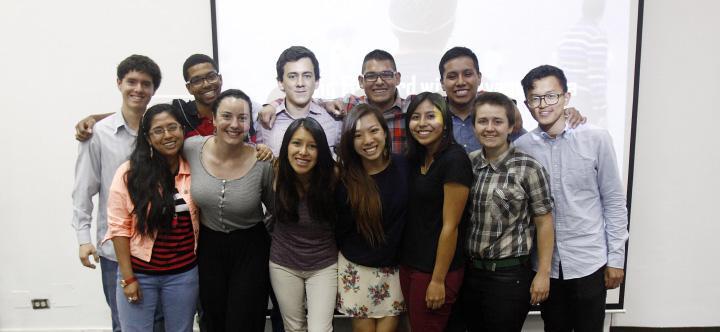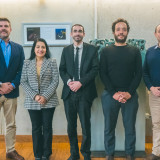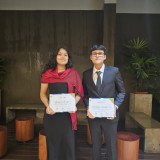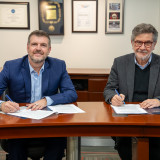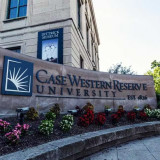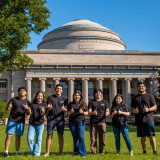Learn
About Us
The university that empowers ingenuity, innovation, and entrepreneurship.
Our Academic
Offer
With our active learning methodology, our students experience engineering from day one.
Ingenuity,
dedication, and
the pursuit
of excellence
Our students' DNA: achieving highest academic achievement and personal development.
International
alliances
We've built strong relationships with the best educational institutions in the world.
Research
Experience
The right path to finding better solutions.
Sustainability UTEC
Sustainability documents
Contact:
Giancarlo Marcone
HACS DIRECTOR
gmarcone@utec.edu.pe
Learn
About Us
The university that empowers ingenuity, innovation, and entrepreneurship.
Our Academic
Offer
With our active learning methodology, our students experience engineering from day one.
Ingenuity,
dedication, and
the pursuit
of excellence
Our students' DNA: achieving highest academic achievement and personal development.
International
alliances
We've built strong relationships with the best educational institutions in the world.
Research
Experience
The right path to finding better solutions.
Sustainability UTEC
Sustainability documents
Contact:
Giancarlo Marcone
HACS DIRECTOR
gmarcone@utec.edu.pe
Seeking to mitigate the effect of the harsh climate conditions in the Andean highland regions, a group of students from our university and MIT (Massachusetts Institute of Technology), under the supervision of UTEC professors Samuel Charca and Julien Noel, and MIT professor, Pedro Cuellar, conducted a series of research studies associated with improving the quality of life of the poor populations living in the Andean highland regions, using projects that introduce concepts related to thermal insulation, and the design and construction of improved kitchen stovesIn the Andean regions situated at altitudes over 3,000 meters above sea level (m.a.s.l.) climate conditions fluctuate widely with day time temperatures reaching 15 to 23 C°, but at night, particularly during the winter season temperatures can drop to -20 C°, the latter being a dangerous threat to the survival of community residents. Currently, a large percentage of households have a rustic type of construction, which lack or do not meet any form of thermal insulation standards. Also, the high concentration of the presence of gases hazardous to health, particularly CO in closed quarters (e.g. kitchens) due to harmful wood combustion, is another frequently inadequate condition that occurs in the Andean Highland regionsWhat did we do to solve this real world problem? We applied #IngenioEnAcción (#IngenuityInAction)First stage:The thermal and physical properties of natural fibers were analyzed and described in the laboratory using ASTM standards, obtaining quite promising results. Meanwhile, a model of an improved wood burning kitchen stove was designedSecond stage:Next, they selected the Rayapampa community, located about 2 ½ half hours away from the city of Tarma traveling by vehicle over very bumpy road. The thermal insulation system was implemented in one of the classrooms at a vocational school where students study and sleep overnight in the classroom. The design and manufacturing method of the improved kitchen stove were optimized with the active cooperation of the community members. Third stage: They evaluated the impact of the solutions that were developed and for this purpose they have planned for the installation and monitoring of the conditions of the systems that were implemented. Finally, and as a part of the development of this project and the partnership we maintain with other world renowned academic institutions, UTEC students will visit the D-Lab laboratories (MIT) where they will receive training courses in D-Lab Scale Ups, for developing social engineering projects.
EN UTEC VENIMOS DESARROLLANDO LA TECNOLOGÍA
Y LA INGENIERÍA QUE NECESITA EL MUNDO DEL MAÑANA
Carreras en ingeniería y tecnología que van de la mano con la investigación y la creación de soluciones tecnológicas de vanguardia, comprometidas con las necesidades sociales y la sostenibilidad.
Decide convertirte en el profesional que el mundo necesita. Estudia en UTEC y lleva tu ingenio hacia el futuro.
Noticias recientes
-
- STUDY ABROAD
- Studying in Peru
- Living in Peru
- FAQ
- Application Form
- Contact us
-
- EXECUTIVE EDUCATION
- Executive Education
- Short Courses
- Inhouse Courses
- Calendar
